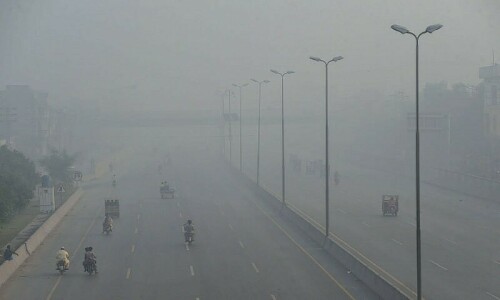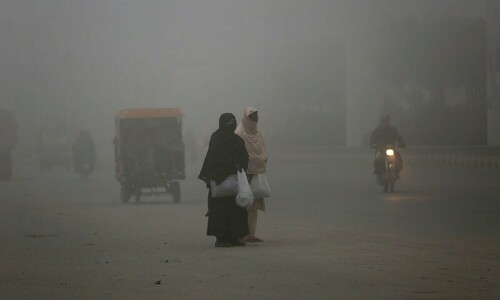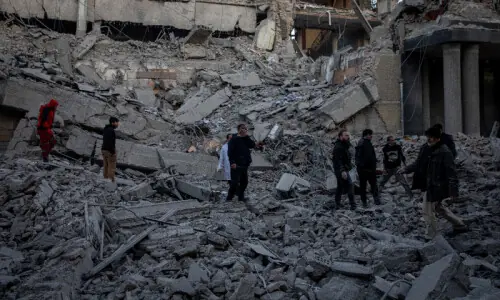The interim Punjab government on Sunday made it compulsory for citizens to wear a face mask when stepping out of their homes in 10 smog-hit districts of the province.
In a post on X (formerly Twitter), caretaker Chief Minister Mohsin Naqvi said the decision was taken in response to deteriorating air quality in Punjab.
“The Punjab government announces a one-week mandate for wearing of face masks for all citizens in smog-affected districts of Punjab. Prioritising health is our collective responsibility. Please adhere to the guidelines for a safer community,” he said.
According to the notification shared by Naqvi, the order will be implemented in Lahore, Nankana Sahib, Sheikhupura, Kasur, Gujranwala, Gujrat, Narowal, Hafizabad, Sialkot and Mandi Bahauddin from Nov 20 to Nov 26.
“High level of air quality due to smog poses a serious and imminent threat to public health in all age groups. Hence, it is mandatory to take all possible safety measures for prevention and control of airborne diseases in the province of Punjab,” the notification added.
Lahore recorded an AQI of 203 at 1pm today, which falls under the category of unhealthy, as per the Air Quality Index. The main pollutant was PM2.5, which is a fine particulate matter that can enter the lungs and bloodstream, resulting in serious health issues.
Earlier, the government had decided to impose a smart lockdown in smog-hit districts on Nov 18 to tackle the escalating air pollution levels and an alarming increase in conjunctivitis cases amid smog. All public and private schools, colleges, universities and offices were closed.
Essential services like bakeries, pharmacies, petrol pumps, vaccination centres, e-commerce centres, postal/courier services, utility stores, cellular network/telecom centres and public transport were allowed to operate.
The lockdown was aimed at reducing vehicular and industrial emissions that contribute to the smog formation. The government had also banned the burning of crop residues, garbage, tyres, polythene bags and leather in the province.
However, these measures seemed to have little impact on the air quality, as the smog situation persists in Lahore and other districts.
Smog is a result of a combination of factors, including low wind speed, high humidity, temperature inversion, transboundary pollution from India and local emissions from vehicles, industries, brick kilns and crop burning.
It not only affects visibility and causes traffic accidents, but also poses serious health risks to residents, especially those with respiratory and cardiovascular diseases, children, elderly and pregnant women. Some of the common symptoms of smog exposure are coughing, wheezing, chest pain, eye irritation, headache, nausea and fatigue.
Experts have advised the citizens to take precautionary measures to protect themselves from the harmful effects of smog, such as wearing masks, using air purifiers, avoiding outdoor activities, especially during peak hours, and seeking medical attention if they experience any discomfort.































